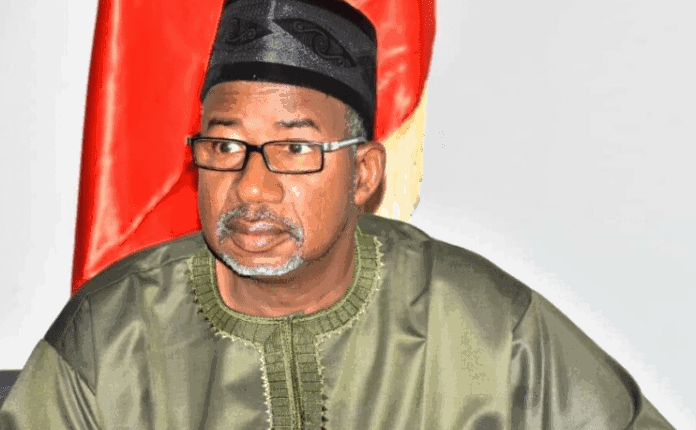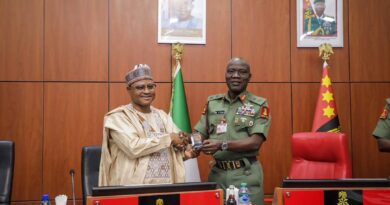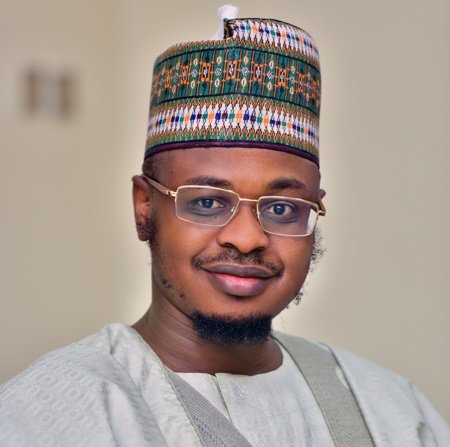Takeaways from Kaduna Peace And Interfaith Dialogue, By Nasir A. Dambatta
Kaduna, Peace: With peace and security, unity and development forming the cardinal responsibilities of every government, every leader committed to delivering the desired governance to the people never trifles with any effort at entrenching these in the entity he governs.
These three principles, which form the foundation and very essence of existence, are of prime importance for both the leader and the led. Both parties converge on them, each playing critical roles according to the demands of the existing times, coordinated by the leader, to reap all the benefits deliverable by the government.
The unbreakable nexus holding these three key determinants of peaceful and prosperous human existence have made it impossible for whatever little power and prosperity to be achieved without all the three performing roles in a seamless symbiotic relationship with each other.
The realization of these facts seems spurring and guiding Kaduna Stats Governor Uba Sani in his governance policies, programmes and projects aimed at rebuilding Kaduna to its cherished glorious past and bequeath an enviable prosperous entity in all sectors of human existence to whoever succeeds him.
Senator Sani expressed this resolve by unveiling what can be described as a landmark vision for Peace, security and development at Interfaith Dialogue Forum in Kaduna recently.
As Chairman of the 6th Annual Interfaith Dialogue Forum Peace Conference, Kaduna Gov Sani, addressing the convergence, harped hard on the critical need for unity, security, and development constituting the cine qua non of existence and prosperity.
As he addressed the religious leaders, Governor Sani u derscored Kaduna’s strength in diversity, gladly observing: “Conflict entrepreneurs have tried to pull us apart, but we are harnessing our diversity and turning it into an asset.”
As this enviable and emulatable asset, Kaduna has, he proudly said, become a model of development, ethnic harmony, and cooperation under his people-oriented administration.
The conference’s theme, “Tackling Poverty and Insecurity in Nigeria: Our Collective Responsibilities,” resonated throughout the Governor’s speech as he pecked on poverty and insecurity as the nation’s major challenges, stressing the need for an evidence-based approach.
“Our approach must be evidence-based,” Governor Sani urged, calling for a sterner look at the root causes of insecurity with a view to combating it properly, without the seemingly intractable frustrating mistakes bedeviling the current insecurity war across the country, to guarantee sustainable future prosperity.
Governor Sani underscored the importance of strategic thinking in reshaping the security architecture. He proposed the establishment of state police for localized control, stating, “A State Governor should be in effective control of security in his state.”
He, subsequently, highlighted the imperative of effective intelligence gathering, modernization of security agencies, and a complete overhaul of the country’s existing security architecture.
Calling for unity among security agencies, Governor Sani expressed the need for effective coordination and cooperation among and across security agencies. He urged the country’s six geopolitical zones to develop common strategies, emphasizing decentralization as key to tackling criminal elements.
Governor Sani descended heavily on corruption as a major hindrance to development, stressing the need for a collective fight against it.
“Corruption has undermined development in Nigeria,” he asserted, emphasizing the importance of ethical reorientation and a shift in values towards decent work and development.
Governor Sani proposed a comprehensive framework for psychological operations and strategic communication to win citizens’ support in the fight against criminality. He called for regular consultations with community leaders and the establishment of STATE CONSULTATIVE COMMITTEES ON INSECURITY.
In a plea for inter-state partnerships, the Governor highlighted the significance of infrastructure development, agriculture, and poverty alleviation, suggesting that collaborative efforts could generate jobs and revitalize local economies.
Leadership accountability was a central theme in Governor Sani’s address.
“As political leaders, we must lead by example,” he declared, urging a concerted effort for good and accountable governance.
The Governor concluded with a message of hope, stating, “No matter how bleak our situation may seem, we have a duty to consistently radiate hope.”
In officially declaring the 6th Annual Interfaith Dialogue Forum for Peace Conference open, Governor Sani expressed optimism for a brighter future, calling on influential religious leaders for actionable recommendations.



